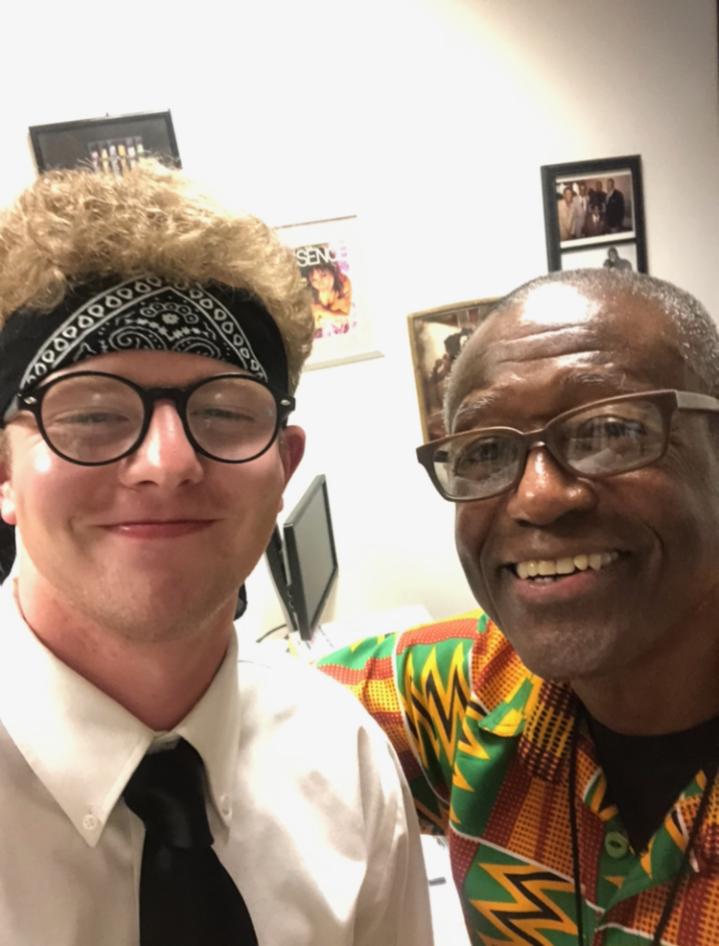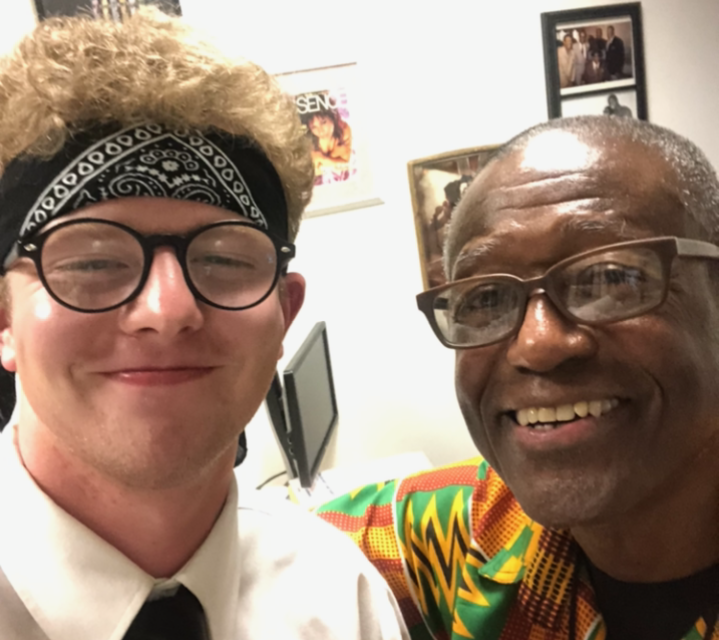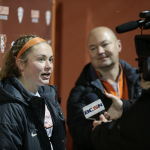Gene Shelton
From Denny’s to Motown, Gene Shelton has seen it all.
By RC | Contributing Writer

“I started off as a police reporter, a tour guide at Universal and something with Denny’s. But music ran through my blood. I wanted to be a popular music critic.”
– Gene Shelton
Kent State Professor Eugene Shelton has seen it all. In order to tell his story his way, however, he had to go all the way back to his childhood and start from the beginning.
“I had to find myself. I did not have a good relationship with my father. I had a better relationship with his brothers and my uncles, but now I understand that that was just his way of trying to toughen me up. If I didn’t have my uncles and friends of my father who respected me, I would have had low self-esteem because it was instilled in me that I was never good enough but it helped me to grow confidence and I consider myself a very confident guy.”
Gene stated that while his relationship with his father was rough at times, it was his father that got him interested in his two loves: music and journalism.
“Through him is how I developed my love of music and newspaper. He wanted to see what was going on in the world. I was the head editor of the newspaper. Because my teacher complimented me on my writing skills, that’s what I wanted to be.”
Talking further about his tenure at his high school as a teenager, Gene went on to say, “School was a place to escape. I embraced the attention from teachers. Teachers loved me. I wasn’t ever the most popular, but I always got good report cards. I wasn’t the smartest; I had to teach myself through things I was interested in. I wasn’t the most popular kid, but I was well respect and was President of the National Honor Society.”
Gene graduated near the top of his class, and got a scholarship to go to Kent State University. However, he was taken aback by his new surroundings. “Once I graduated, it was Alpha Phi Alpha that I turned to. At this point my ego is beyond. I’m going to Kent State on scholarship. All that went out the window when I went there and nobody looked at me. If I believed what I saw on TV they were all smarter and stronger than me. I had to learn for myself.”
Gene was elected president of his fraternity his freshman year, and was having the time of his life partying and meeting his eventual wife. Then, the university was rocked by the infamous Kent State shootings on May 4th, 1970. The shootings – caused by a mix of unrest, protesters and the National Guard implemented to restore order– was a period of time Gene would never forget for the rest of his life.
“Because of the horrendous events of May 4th, every class that I took regardless … the assignment was to write about the shooting. That was the only time I got straight A’s. All the music started blasting and all you could smell was weed.” He continued saying, “I did not go out. There were too many confrontations between black students and National Guardsmen, the head of Pan-African studies implored all African American students to boycott classes. That’s why, in the May 4th museum, you don’t see any black students. If you look at that video, you would think there were no black students at Kent State University.”
After his stint at Kent State, Gene spent two years at the University of Wisconsin for graduate school on a fellowship. Shortly after marrying his wife, whom he had actually known since high school, Gene was doing freelance work as a journalist when he got the first job that would truly change his life.
“I started off as a police reporter, a tour guide at Universal and something with Denny’s. But music ran through my blood. I wanted to be a popular music critic. I was told I didn’t know the industry, and that I should move out to L.A. and freelance. I hardly saw my wife, but I was determined. That’s how I ended up with Motown. Then, Bob Jones called the head of black music at CBS [Records] and said, ‘If you ever get an opening, check this guy out. He’s good.’ And I got a job at CBS and loved it more than Motown.”
Gene went on to say that as much as he loved CBS Records, he eventually went back to Motown after they offered him a raise, a promotion and the ability to manage and market Lionel Richie on his first solo tour. In 1983, Gene felt it was time to move on from Motown Records and handed in his resignation without another job lined up.
“After Motown and CBS, I spent maybe five years running Gene Shelton & Associates; my own PR firm. Finally, I got hired at Warner Brothers [Records] and my last job was Vice President of Media Relations. I was there from ’87 to ’96. Second to Kent State, I worked for nine years at Warner Brothers Records. No other job have I stayed with as long … I think someone upstairs had a great plan for me and I didn’t even know it.”
Working with artists as diverse as Big Daddy Kane, Prince and Rick James just to name a few, Gene said that he dealt with both big egos and small ones while mentioning that Rick James was one of the kindest people he ever had the pleasure of working with.
After Warner Brothers, Gene decided to skip another paying job in favor of going back to graduate school to work underneath Melanie Baker. Finally, Gene become a professor at Kent State University as a graduate student in the least predictable way possible.
“He [Jeff Fruit – Director of Student Media in 2003] asked if I would guest lecture his MPC [Media, Power & Culture] class on music. I was going to Cartwright Hall with what I thought were lecture notes and it was student media notes so I had to wing it for 50 minutes. I thought it was a disaster, but apparently the students gave him positive feedback. He asked me if I wanted to teach this class in the fall, and I said, ‘Yes, but I won’t have my degree.’ He said, ‘You’ll get it.’ I have been here ever since.”
When asked to sum up all his years on this planet, Gene said, “No regrets about anything in life. The good, the bad and the ugly. Yes, there were mistakes … I wish that I hadn’t hurt my wife or kids as much as I did. But I was being true to me in the process. Nobody ever put a gun to my head and said do this, I did it because I wanted to. And there are consequences to pay when you have that attitude. I do what I want to do.”
“And there are consequences to pay when you have that attitude. I do what I want to do.”
– Gene Shelton







